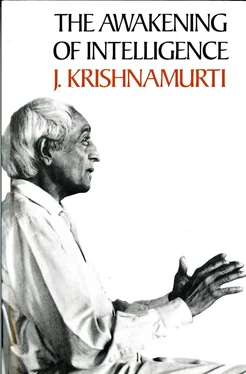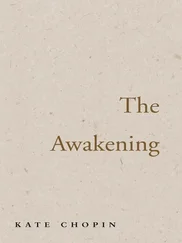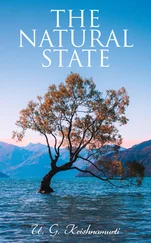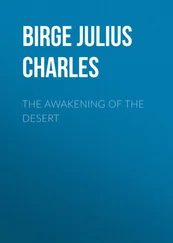To enquire into what is a religious mind, we must be free of our conditioning, of our Christianity, of our Buddhism, with all the propaganda of thousands of years, so that the mind is really free to observe. That is very difficult because we are afraid to be alone, to stand alone. We want security, both outwardly and inwardly; therefore we depend on people, whether it is the priest, or the leader, or the guru who says: “I have experienced, that is why I know.” One has to stand completely alone—not isolated. There is a vast difference between isolation and being completely alone, integral. Isolation is a state of mind in which relationship ceases, when in your daily life and activity you have actually built a wall around yourself, consciously or unconsciously, so as not to be hurt. That isolation obviously prevents every form of relationship. Aloneness implies a mind that does not depend on another psychologically, is not attached to any person; which does not mean that there is no love—love is not attachment. Aloneness implies a mind that is deeply, inwardly without any sense of fear and therefore without any sense of conflict.
If you go as far as that, then we can proceed to find out what discipline means. For most of us discipline is a form of drill, of repetition; either overcoming an obstacle, or resisting or suppressing, controlling, shaping, conforming—all that is implied in the word discipline. The root-meaning of that word is to learn; a mind that is willing to learn—not to conform—must be curious, must have great interest, and a mind that already knows, cannot possibly learn. So discipline means to learn why one controls, why one suppresses, why there is fear, why one conforms, compares, and is therefore in conflict. That very learning brings about order; not order according to a design or pattern, but in the very enquiry into the confusion, into the disorder, there is order. Most of us are confused for a dozen reasons, which we needn’t go into for the moment. One has to learn about confusion, about the disorderly life one leads; not try to bring order into the confusion, or into the disorder, but to learn about it. Then, as you are learning, order comes into being.
Order is a living thing, not mechanical, and order surely is virtue. A mind that is confused, conforming, imitating, is not orderly—it is in conflict. And a mind that is in conflict is disorderly and therefore such a mind has no virtue. Out of this enquiry, out of learning, comes order, and order is virtue. Please observe it in yourself, see how disordered one is in one’s life, so confused, so mechanical. In that state one tries to find a moral way of living, which will be orderly and sane. How can a mind that is confused, conforming, imitative, have any kind of order, any kind of virtue? The social morality, as you observe, is totally immoral; it may be respectable, but what is respectable is generally disorderly.
Order is necessary, because only out of order can there be a total action and action is life. But our action brings disorder; there is political action, religious action, business action, family action—they are fragmentary actions. And naturally such action is contradictory. You are a businessman and at home you are a kindly human being—at least you pretend to be; there is contradiction and therefore there is disorder. A mind that is in disorder cannot possibly understand what virtue is. And nowadays, when there is permissiveness of every kind, virtue and order are denied. The religious mind must have this order, not according to a pattern, or a design laid down by you or by another. But that order, that sense of moral rectitude, comes only when you understand the disorder, the confusion, the mess that one lives in.
Now all this is to lay the foundation for meditation. If you don’t lay the foundations, meditation then becomes an escape. You can play with that kind of meditation endlessly. And that is what most people are doing—leading ordinary, confused, messy lives and somehow finding a corner to bring about a quiet mind. And there are all these people who promise to give you a quiet mind, whatever that may mean.
So for a serious mind—and it is a very serious thing, not a game—one must have this freedom from all belief, from all commitments, because one is committed to the whole of life, not to one fragment of it. Most of us are committed to physical or political revolution, or to a religious activity, to some kind of religious, monastic life and so on. Those are all fragmentary commitments. We are talking of freedom, so that you can commit your whole being, your whole energy, vitality and passion to the whole of life, not to one part of it. Then we can proceed to find out what it means to meditate.
I don’t know if you have gone into this at all. Probably some of you have played with it, have tried to control your thoughts, followed various systems, but that is not meditation. One has to dispose of the systems one has been offered: Zen, Transcendental Meditation, the various things that have been brought over from India and Asia, in which people are caught. One has to go into this question of systems, of methods, and I hope you will; we are sharing this problem together.
When you have a system to follow, what happens to the mind? What do systems and methods imply—a guru? I don’t know why they call themselves gurus—I can’t find a strong enough word to deny that whole world of gurus, of their authority, because they think they know. A man who says “I know”, such a man does not know. Or if a man says, “I have experienced truth”, distrust him completely. These are the people who offer systems. A system implies practice, following, repetition, changing “what actually is” and therefore increasing your conflict. Systems make the mind mechanical, they don’t give you freedom, they may promise freedom at the end, but freedom is at the beginning, not at the end. To enquire into the truth of any system, if you have no freedom at the beginning, then you are bound to end up with a system and therefore with a mind which is incapable of subtlety, swiftness and sensitivity. So one can dispose entirely of all systems.
What is important is not controlling thought, but understanding it, understanding the origin, the beginning of thought, which is in yourself. That is, the brain stores up memories—you can observe this yourself, you don’t have to read books about it. If it had not stored up memories it would not be able to think at all. That memory is the result of experience, of knowledge—yours, or of the community, of the family, of the race and so on. Thought springs from that storehouse of memory. So thought is never free, it is always old, there is no such thing as freedom of thought. Thought can never be free in itself, it can talk about freedom, but in itself it is the result of past memories, experiences and knowledge; therefore it is old. Yet one must have this accumulation of knowledge, otherwise one could not function, one could not speak to another, could not go home, and so on. Knowledge is essential.
In meditation one has to find out whether there is an end to knowledge and so to freedom from the known. If meditation is a continuation of knowledge, is the continuation of everything that man has accumulated, then there is no freedom. There is freedom only when there is an understanding of the function of knowledge and therefore freedom from the known.
We are enquiring into the field of knowledge, where it has its function and where it becomes an impediment to further enquiry. While the brain cells continue to operate, they can only operate in the field of knowledge. That is the only thing the brain can do, to function in the field of experience, of knowledge in the field of time—which is the past. Meditation is to find out if there is a field which is not already contaminated by the known.
Читать дальше












